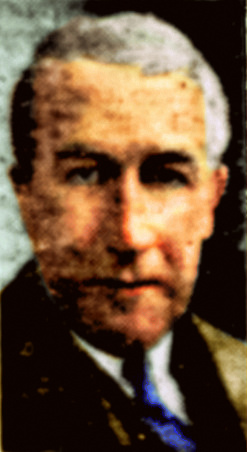Draft report by CCS to President Roosevelt and Prime Minister Churchill
Quebec, September 14, 1944
Top secret
Enclosure to CCS 680
Report to the President and Prime Minister of the agreed summary of conclusions reached by the Combined Chiefs of Staff at the OCTAGON Conference
. . . . . . .
[IV. Execution of the overall strategic concept]
The War Against Japan
Overall objective in the war against Japan
We have agreed that the overall objective in the war against Japan should be expressed as follows:
To force the unconditional surrender of Japan by:
a. Lowering Japanese ability and will to resist by establishing sea and air blockades, conducting intensive air bombardment, and destroying Japanese air and naval strength.
b. Invading and seizing objectives in the industrial heart of Japan.
Operations in the Pacific Area
We believe that operations must be devised to accomplish the defeat of Japan at the earliest possible date and to that end our plans should retain flexibility, and provision should be made to take full advantage of possible developments in the strategic situation which may permit taking all manner of short cuts. We propose to exploit to the fullest the Allied superiority of naval and air power and to avoid, wherever possible, commitment to costly land campaigns. Unremitting submarine warfare against the enemy ships will be continued. Very long-range bomber operations against Japan proper will be continued from China bases and will be instituted from bases being established in the Marianas and from those to be seized in the future. The air forces in China will continue to support operations of the Chinese ground forces and will also provide the maximum practical support for the campaign in the Pacific.
Pursuant to the above, we have accepted, as a basis for planning, a course of action comprising the following schedule of major operations:
| Target date |
Objective |
| 15 October 1944 |
Talaud |
| 15 November 1944 |
Sarangani Bay |
| 20 December 1944 |
Leyte-Surigao Area |
| 1 March 1945 |
Formosa-Amoy Area |
|
Or |
| 20 February 1945 |
Luzon |
If the Formosa operation is undertaken, the following operations have been approved for planning purposes:
|
|
| April 1945 |
Bonins |
| May 1945 |
Ryukyus |
| March to June 1945 |
China coast (Foochow-Wenchow Area) |
| October 1945 |
Southern Kyushu |
| December 1945 |
Tokyo Plain |
A course of action to follow the Luzon operation, if undertaken, is under study.
In connection with the above planning, we have noted that British operations against Japan, not yet approved, will require the allocation of resources. In planning production these requirements will be borne in mind.
British participation in the Pacific
We have agreed that the British Fleet should participate in the main operations against Japan in the Pacific, with the understanding that this Fleet will be balanced and self-supporting. The method of the employment of the British Fleet in these main operations in the Pacific will be decided from time to time in accordance with the prevailing circumstances.
We have invited the British Chief of the Air Staff to put forward, as a basis for planning, an estimate in general terms of the contribution the Royal Air Force will be prepared to make in the main operations against Japan.
Operations in Southeast Asia
We have agreed that our object in Southeast Asia is the recapture of all Burma at the earliest date, it being understood that operations to achieve this object must not prejudice the security of the existing supply route to China, including the air staging base at Myitkyina, and the opening of overland communications.
We have approved the following operations:
a. Stages of Operation CAPITAL necessary to the security of the air route and the attainment of overland communications with China;
b. Operation DRACULA.
We attach the greatest importance to the vigorous prosecution of Operation CAPITAL and to the execution of Operation DRACULA before the monsoon in 1945 and with a target date of 15 March. If DRACULA has to be postponed until after the monsoon of 1945, it is our intention to exploit Operation CAPITAL as far as may be possible without prejudice to preparations for the execution of Operation DRACULA in November 1945.
Redeployment after the end of the war in Europe
We consider that the whole problem of the redeployment of forces after the end of the war in Europe, including repatriation, needs combined study in order to assure the optimum use of the resources involved, including personnel and cargo shipping, and to make certain that the forces required for operations against Japan will reach the theatre of war at the earliest date. We have accordingly instructed the combined staffs in consultation with the combined shipping authorities to study and report on this problem, submitting to the Combined Chiefs of Staff such questions as may require decision before completion of the study.
(NOTE: The above paragraph is dependent upon the decision on CCS 679.)
Duration of the war against Japan
We feel that it is important to agree and promulgate a planning date for the end of the war against Japan. This date is necessary for the purpose of planning production and the allocation of manpower.
We recommend that the planning date for the end of the war against Japan should be set at 18 months after the defeat of Germany; this date to be adjusted periodically to conform to the course of the war.

